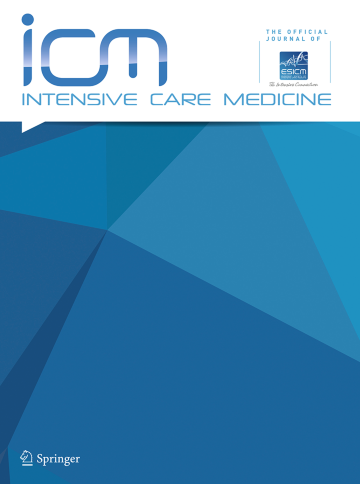重症监护病房的褪黑素和谵妄:随机对照试验的系统回顾和荟萃分析。
IF 21.2
1区 医学
Q1 CRITICAL CARE MEDICINE
引用次数: 0
摘要
背景:谵妄常见于危重病人,并与死亡率增加有关。在最近的随机对照试验(RCTs)中,关于褪黑素预防危重患者谵妄发作的效果的结果发现了差异。方法我们检索MEDLINE、Embase和Web of Science从成立到2025年7月5日评估褪黑素在危重患者中的作用的随机对照试验。主要结局是谵妄的发生率。主要的次要结局是死亡率。我们生成了汇总风险比(RR)。为了使我们的结论基于最高质量的证据,我们的主要分析仅基于每个结果的低至中等偏倚风险的试验。进行了二次分析,包括所有试验。该研究已在PROSPERO注册(CRD420251041661)。我们的初步分析基于6项随机对照试验,共2209例患者,并没有显示褪黑激素治疗导致谵妄发生率的差异(RR 0.89,[95%可信区间(CI) 0.73-1.09])。该结果与次要分析一致,包括13项rct,共2830例患者(RR 0.86, [95% CI 0.70-1.04])。在初级分析(7项rct, 2165例患者,RR 0.87, [95% CI 0.73-1.02])和次级分析(8项rct, 2396例患者,RR 0.92, [95% CI 0.79-1.06])中,未发现死亡率与褪黑素之间的关联。研究结果表明,与安慰剂相比,褪黑素不能降低危重患者谵妄的发生率。同样,没有观察到对死亡率的影响。本文章由计算机程序翻译,如有差异,请以英文原文为准。
Melatonin and delirium in the intensive care units: a systematic review and meta-analysis of randomized controlled trials.
BACKGROUND
Delirium is frequent in critically ill patients and is associated with increased mortality. Discrepancies were found in the results of recent randomized controlled trials (RCTs) regarding the effect of melatonin to prevent delirium onset in critically ill patients.
METHODS
We searched MEDLINE, Embase, and Web of Science from inception to 5 July 2025 for RCTs evaluating melatonin in critically ill patients. The primary outcome was the incidence of delirium. The main secondary outcome was mortality. We generated pooled risk ratios (RR). To base our conclusions on the highest quality of evidence, our primary analysis was based only on the trials with low to moderate risk of bias for each outcome. A secondary analysis was conducted, including all the trials. The study was registered with PROSPERO (CRD420251041661).
FINDINGS
Our primary analysis was based on six RCTs with 2209 patients and did not show any difference in the incidence of delirium attributable to the treatment with melatonin (RR 0.89, [95% confidence interval (CI) 0.73-1.09]). This result was consistent with the secondary analysis including thirteen RCTs with 2830 patients (RR 0.86, [95% CI 0.70-1.04]). No association was found between mortality and melatonin in the primary (seven RCTs, 2165 patients, RR 0.87, [95% CI 0.73-1.02]) and secondary (8 RCTs, 2396 patients, RR 0.92, [95% CI 0.79-1.06]) analyses.
INTERPRETATION
The results suggest that compared to placebo, melatonin does not reduce delirium incidence in critically ill patients. Similarly, no effect was observed on mortality.
求助全文
通过发布文献求助,成功后即可免费获取论文全文。
去求助
来源期刊

Intensive Care Medicine
医学-危重病医学
CiteScore
51.50
自引率
2.80%
发文量
326
审稿时长
1 months
期刊介绍:
Intensive Care Medicine is the premier publication platform fostering the communication and exchange of cutting-edge research and ideas within the field of intensive care medicine on a comprehensive scale. Catering to professionals involved in intensive medical care, including intensivists, medical specialists, nurses, and other healthcare professionals, ICM stands as the official journal of The European Society of Intensive Care Medicine. ICM is dedicated to advancing the understanding and practice of intensive care medicine among professionals in Europe and beyond. The journal provides a robust platform for disseminating current research findings and innovative ideas in intensive care medicine. Content published in Intensive Care Medicine encompasses a wide range, including review articles, original research papers, letters, reviews, debates, and more.
 求助内容:
求助内容: 应助结果提醒方式:
应助结果提醒方式:


